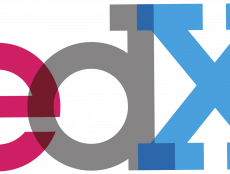
Articles
Higher Education
Industry News
Have Online Degrees and Credentials Finally Lost Their Stigma?
By Cait Etherington
December 17, 2018
A new report by Northeastern University’s Center for the Future of Higher Education and Talent Strategy has concluded that employers—specifically, human resources (HR) leaders—are now increasingly interested in candidates’ credentials, not simply their degrees. The study also found that most HR leaders no longer view online degrees or credentials as inferior to those earned on campus. But does this mean that the stigma that once shrouded online education has finally lifted?
When Online Degrees and Credentials Carried a Deep Stigma
In the early 2000s, it wasn’t unusual to hear people joking about online degrees and credentials. At the time, it was widely assumed that anyone with an online education was less qualified than someone who had sweat it out on campus in an actual classroom. The stigma of studying online wasn’t entirely unfounded. In the 1990s to early 2000s, “diploma mills”—unaccredited online programs—were widespread and operating with few checks and balances.
In 2009, Norina L. Columbaro and Catherine H. Monaghan, researchers at the Cleveland State University, published an article analyzing dozens of studies and popular articles on employers’ perceptions of online degrees. By and large, they found that “gatekeepers”—for example, employers and hiring managers—“have an overall negative perception about online degrees.” In their survey, Columbaro and Monaghan also found several recurring concerns about online degrees. These concerns ranged from a perceived lack of rigor to concerns about the increased potential for academic dishonesty. Not surprisingly, the fact that online degrees were still associated with an earlier generation of diploma mills was also a concern.
Among the many studies and popular articles included in Columbaro and Monaghan’s 2009 publication was a 2003 article published in the Chronicle of Higher Education. In the article, Gabriela Montell scathingly observed that online degree programs tend to attract “managerial wannabes, career changers, or academic hopefuls.” But as Montell noted, especially when learners pursue online PhDs, they tend to be “a flop on the job market.” While Montell notes that this is partly due to the fact that online PhD students typically graduate without teaching experience or a publication record (both important hiring considerations on the academic job market), she also notes that the stigma attached to online degrees doesn’t help matters:
Even if a hiring committee has heard of the institution, the stigma associated with “distance” or “online” learning can still be a strike against a candidate … In fact, the stigma is so great that some administrators avoid using words like “online” to describe their nontraditional programs because doing so, they say, perpetuates a misperception that students are isolated from professors in the programs.
Gaining Recognition and Prestige
Over the past twenty years, a lot has changed. Today, a growing number of prestigious universities, including Harvard and MIT, are embracing online learning. Companies like Coursera are also showing how online learning companies can successfully partner with established universities to deliver quality undergraduate and graduate degrees. In addition, more than ever before, employers and hiring managers are indicating that they don’t care if a prospective employee earned their degree or credential on campus or online.
In a July 2018 post on LinkedIn, Carolyn McIntyre, Founder and CEO at MoocLab and e-Learninglab, observes:
“Although the traditional degree certificate is still the more valued credential among employers in general, employers in today’s job market are looking for technically skilled, job-ready candidates which a traditional degree doesn’t always guarantee. Being able to show physical evidence of your abilities is becoming increasingly important in recruitment, and MOOCs can play a key role in this with many MOOC programs culminating in a practical capstone project, giving employers a clear picture of a candidate’s abilities.
“Moreover, having a transcript of MOOC certificates issued by some of the world’s most elite universities by the likes of MIT, Harvard and Stanford demonstrates in itself motivation, perseverance, dedication and entrepreneurship – traits that all employers will be looking for in a candidate. It is then up to the candidate to show tangible proof of the hard skills he or she has acquired through course certificates and transcripts as well as any evidence of completed project work.”
According to the Center for the Future of Higher Education and Talent Strategy’s new report, Educational Credentials Come of Age: A Survey on the Use and Value of Educational Credentials in Hiring, McIntyre’s perception that online credentials are gaining acceptance is also something shared by a lot of HR leaders.
To find out what HR leaders think about online credentials, researchers at the Center for the Future of Higher Education and Talent Strategy designed and executed a national survey of 750 HR leaders at U.S. employers that spanned all industry sectors and organizational sizes. Their survey found that perceptions and attitudes about both online credentials and degrees are finally shifting. As the authors of the study write, “Online education now accounts for 16% of all higher education enrollment in the U.S., at 3.1 million students.”
Two of the study’s findings are particularly significant. First, the survey found that skills-based or competency-based hiring is currently gaining momentum; a majority of HR leaders indicate that they are making an effort to “de-emphasize” degrees when it comes to hiring (23%) or are actively moving in this direction (39%). While the study did find that “Employer awareness and experience with candidates who hold non-degree ‘microcredentials’ is still relatively low … this is evolving rapidly in a growing market.” Second, the study found that online credentials are now “mainstream.” The majority of HR leaders surveyed (61%) indicated that a credential earned online is “generally equal quality to those completed in-person,” and this is a notable increase from previous years’ surveys.
The Future of Online Credentials and Degrees
In 2018, the Chronicle of Higher Education reported that one out of three college students now takes at least one class online. The finding is notable since it suggests that even students studying on campus are increasingly completing at least part of their education in the online ecosystem. While the same article emphasizes that the medium is still often misunderstood by the general public, and sometimes within higher education itself, studies such as Educational Credentials Come of Age indicate that among employers, the stigma once attached to online degrees is rapidly melting away.
For candidates working toward online degrees and credentials, including those looking to start a career with an online DNP degree, it will be important for researchers to continue tracking employer perceptions of candidates who have pursued their educations online. This research will help online degrees and credentials gain currency over the next decade. Long-term data on the success of these candidates, especially those who have chosen to forego a traditional degree in lieu of a “microdegree” or other type of alternative credential, may prove especially salient. If online learners, especially those who choose not to pursue a traditional four-year degree, prove successful over time on the job, the impact on on-campus undergraduate and graduate degrees could be profound.
Photo credit: Jonathan Daniels, “Two women blowing glitter,” Unsplash.









[…] Source link […]